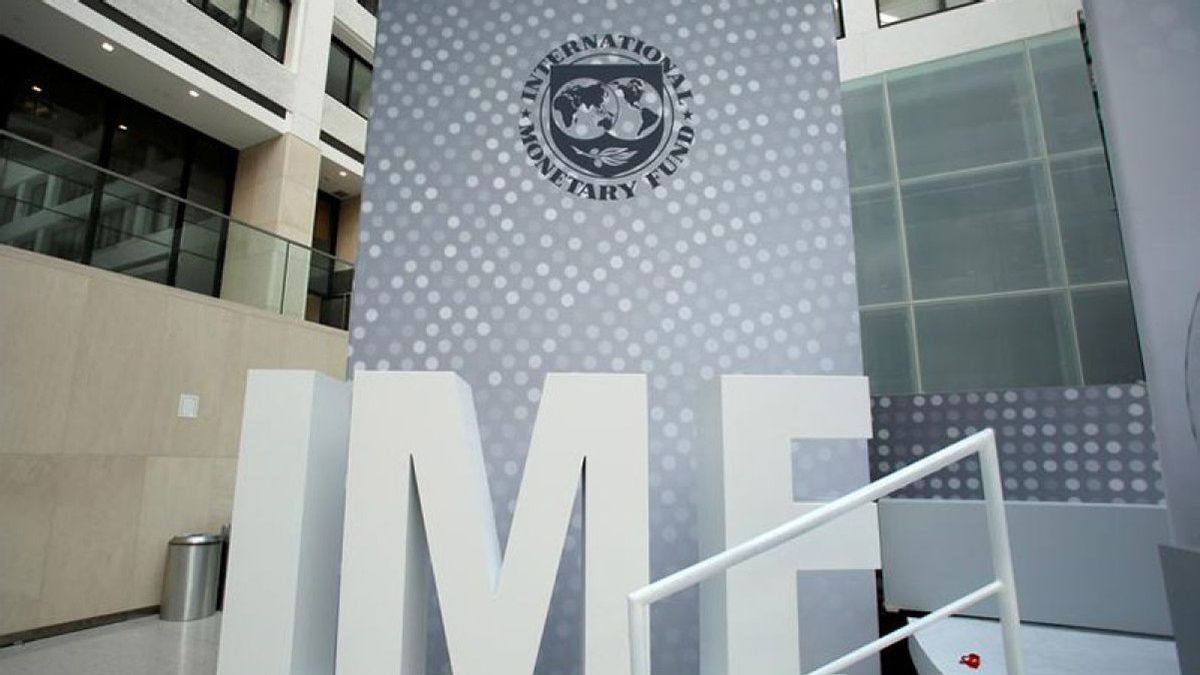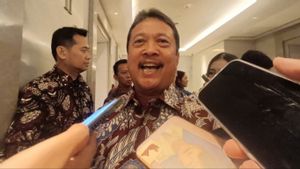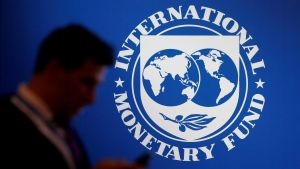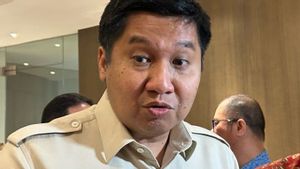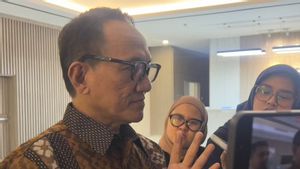JAKARTA - Jakarta Veterans UPN Public Policy Economist Achmad Nur Hidayat said the prediction of the International Monetary Fund (IMF) was not surprising.
The International Monetary Fund (IMF) in the April 2025 edition of the World Economic Outlook report cut Indonesia's economic growth projection from 5.1 percent to 4.7 percent.
"The public seemed surprised. However, for us, this is not surprising news. On April 10, 2025, we have stated that Indonesia's economic growth this year is at risk of falling to 4.2 percent if the economic team is not adaptive enough to global geopolitical changes," he explained in his statement, Wednesday, April 23.
According to him, the IMF's projected decline only emphasized that concerns that had already been voiced by the ingredients of Indonesia's economic policy at this time were not convincing enough to bring the national economy to grow above 5 percent.
Previously, the government targeted economic growth of 5.2 percent in the 2025 State Budget, with the World Bank estimating 5.1 percent and OECD at 4.9 percent.
Achmad said global developments that were not profitable, especially US President Donald Trump's aggressive tariff policy, made these figures just an illusion of optimism.
"In our opinion, a more honest and critical projection places Indonesia's growth only in the range of 4.2 percent to 4.5 percent, even with a lower potential if the policy response remains passive," he said.
The IMF identifies external pressure as the main cause of Indonesia's economic downturn. Global trade tensions, new US tariff policies, and the economic slowdown in key trading partner countries have triggered a decline in projections.
However, he said that what is more important and often escapes the spotlight is the IMF's assessment of Indonesia's domestic problems, namely stagnant productivity, the incompetitive manufacturing sector, and the demographic transition towards reducing the proportion of productive age population.
The IMF implies that Indonesia is not only facing challenges from outside, but also carrying a heavy internal burden due to past economic policies.
Achmad said that massive investment in infrastructure that is not accompanied by institutional reforms and increased productivity only creates an illusion of short-term growth.
"When debt accumulates and the productive results of infrastructure projects are not optimal, fiscal burdens increase without strengthening the economic basis," he said.
According to him, in facing increasingly complex global challenges, Indonesia can no longer rely on old strategies.
He added that the IMF correction should be used as a serious alarm, our economic policy needs to be reconstructed with a new foundation, namely data-based, adaptive to global change, and in favor of people's welfare, especially the middle class, which has been the backbone of the national economy.
"The economy is not enough to build with narratives and promises, but must be supported by real, measurable, and able to respond to the dynamics of the times," he said.
Achamd emphasized that the correction to Indonesia's economic growth projection in 2025 decreased downwards not only due to externalities, but also due to the government's weak ability to adapt strategic and fast economic policies.
"Trump's tariff policy is a trigger, but it doesn't necessarily become a single cause. Conventional fiscal responses, extensive but inappropriate subsidies, and dependence on the APBN instrument without strengthening the real economic base are internal factors that exacerbate the situation," he said.
另请阅读:
According to him, if the government does not immediately change its approach and accelerate policy adaptation with a combination of industrial incentives, export diversification, and targeted protection of vulnerable groups, then the risk of a wider economic crisis cannot be avoided.
"The year 2025 can be a bitter learning moment on how failure to adapt can erode growth and deepen inequality," he concluded.
The English, Chinese, Japanese, Arabic, and French versions are automatically generated by the AI. So there may still be inaccuracies in translating, please always see Indonesian as our main language. (system supported by DigitalSiber.id)
